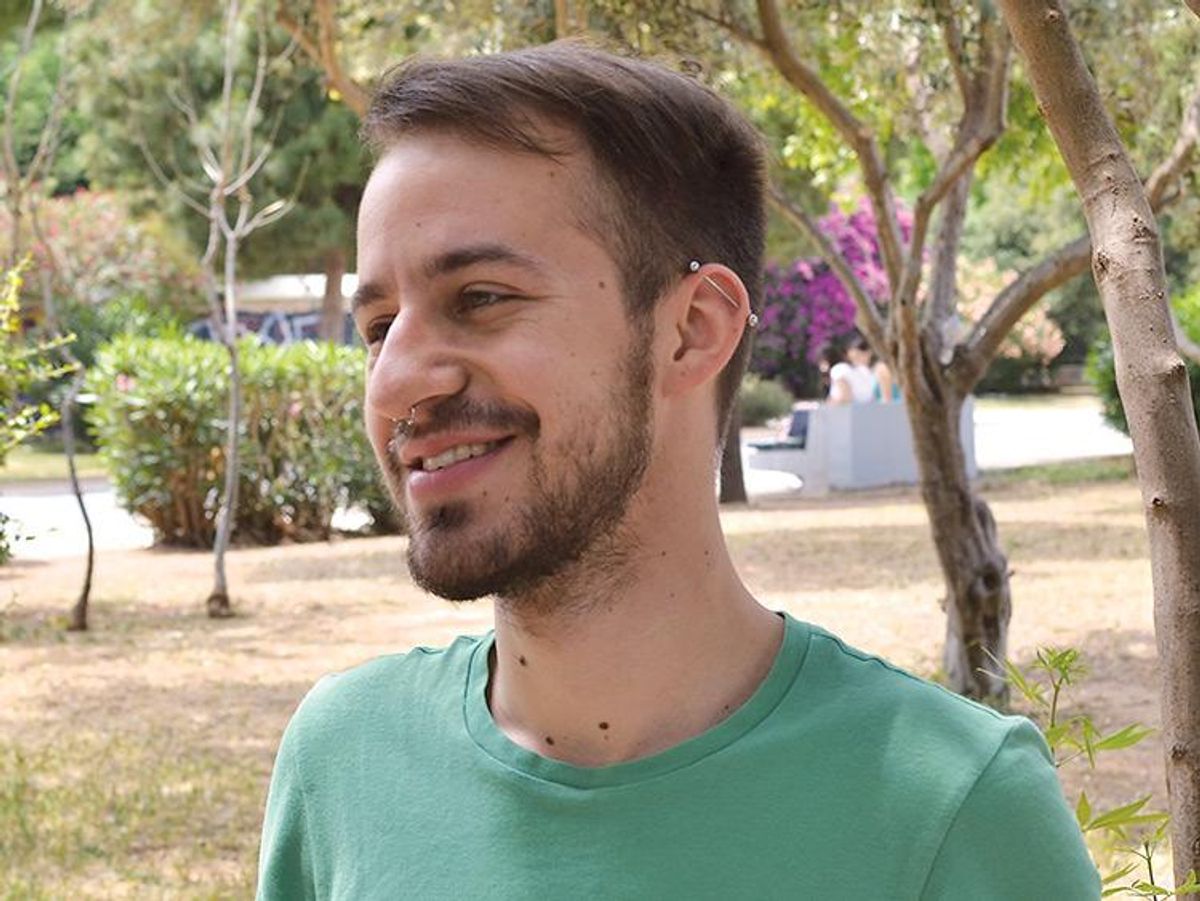Image courtesy of Nikolas Malandrakis of Colour Youth.
First off, let me introduce myself. I'm George-Kyveli. Why the double-barrel name? Well, in Greece, all names are gendered, so it's impossible to find a good neutral name. Combining the two genders with George, a male name, and Kyveli, a female one, is a little trick I use to bring visibility to my non-binary identity, as someone who doesn't feel completely like a man or woman all the time.
Growing up, I never felt comfortable with people's assumptions of me. I was expected to behave, think, and feel a certain way because I was assigned male at birth. I started to feel uncomfortable with my body, and I didn't know whom to talk to. Every time I tried to open up about it, I was told I was feeling this way because of puberty or because I was a trans woman. I was told internalized transphobia was stopping me from being the "real me." But the truth is, I've never felt like a cis man or a trans woman.
But then someone asked, "Have you ever thought of using the term non-binary? Looks to me it could explain part of your identity."
Having the term non-binary to describe myself has been a real life changer. It's allowed me to explore outside the male-and-female binary and be more critical of the idea of gender itself.
The label has also helped me find
others like me. Recently, together with a friend, I set up an online group for non-binary, genderqueer, and gender-variant people in Greece. I thought it'd just be me, but now we've more than 50 members. Having a space to share experiences and discuss visibility is super empowering.
It's not often we have a platform to discuss our experiences. I'm really lucky that my LGBTQI youth group Colour Youth is very inclusive. In 2016 I was given the opportunity to speak to an audience of ministers, political party members, and LGBTQI young people at our IDAHOT [International Day Against Homophobia, Transphobia and Biphobia] Forum. I spoke about my experience as a non-binary person and the systemic inequalities that people like me face in the Greek education and national health systems.
It was the first time a non-binary young person had addressed the need for a third gender option on identity documents. And by the looks of the faces in the audience, it was the first time they'd heard about non-binary gender at all.
It can often be pretty tough fighting your corner as a non-binary activist. You're fighting society's expectations of you and, on top of that, attacks from binary trans people. I mean, I've had my identity attacked quite a few times by binary trans activists, and there isn't a single trans organization in Greece that is standing for non-binary people.
Some trans men and women are fearful that by fighting for our rights, we'll make it harder for them to access theirs, and we'll confuse the population into having more hatred toward us.
I know that as a male-presenting person, who doesn't face systemic transphobia, I enjoy certain privileges, and maybe this is where the tension is coming from. But we all have to work together, and the only way to do that is through mutual respect and a willingness to understand the different oppressions all of us experience in terms of our gender identity and expression, along with our privileges.
Too many voices are dismissed as inexperienced, useless, and unimportant. It's my goal to help make those voices heard.


















































































